
Lyon: The Culinary Heart of France
Nestled between two rivers, the Rhône and the Saône, Lyon is a city with a rich tapestry of history and culture. Renowned for its stunning Renaissance architecture in Vieux Lyon, this city invites visitors to stroll through its cobbled streets and hidden passageways known as traboules. These secret pathways, once used by silk weavers, now offer a unique glimpse into the past. But Lyon is not just about history; it is also the gastronomic capital of France. The city boasts a plethora of Michelin-starred restaurants and traditional bouchons, where you can indulge in local delicacies such as coq au vin and quenelles. For food enthusiasts, the Les Halles de Lyon Paul Bocuse market is a must-visit. Named after the legendary chef, this market is a paradise for anyone looking to experience the finest in French cuisine. Beyond food and history, Lyon offers a vibrant cultural scene. The Musée des Beaux-Arts houses an impressive collection of art, while the Festival of Lights in December transforms the city into a magical wonderland. With its blend of old-world charm and modern amenities, Lyon promises an unforgettable experience for every traveler.
Local tips in Lyon
- Explore the traboules in Vieux Lyon to discover hidden passageways and historical architecture.
- Visit Les Halles de Lyon Paul Bocuse for an authentic French market experience.
- Try dining at a traditional bouchon for a taste of local Lyonnaise cuisine.
- Plan your trip in December to experience the magical Festival of Lights.
- Use the city's efficient public transport to explore different neighborhoods easily.
Neighbourhoods in Lyon
Lyon: The Culinary Heart of France
Nestled between two rivers, the Rhône and the Saône, Lyon is a city with a rich tapestry of history and culture. Renowned for its stunning Renaissance architecture in Vieux Lyon, this city invites visitors to stroll through its cobbled streets and hidden passageways known as traboules. These secret pathways, once used by silk weavers, now offer a unique glimpse into the past. But Lyon is not just about history; it is also the gastronomic capital of France. The city boasts a plethora of Michelin-starred restaurants and traditional bouchons, where you can indulge in local delicacies such as coq au vin and quenelles. For food enthusiasts, the Les Halles de Lyon Paul Bocuse market is a must-visit. Named after the legendary chef, this market is a paradise for anyone looking to experience the finest in French cuisine. Beyond food and history, Lyon offers a vibrant cultural scene. The Musée des Beaux-Arts houses an impressive collection of art, while the Festival of Lights in December transforms the city into a magical wonderland. With its blend of old-world charm and modern amenities, Lyon promises an unforgettable experience for every traveler.
When is the best time to go to Lyon?
Iconic landmarks you can’t miss
Parc de la Tête d'Or
Experience the natural beauty and tranquility of Parc de la Tête d'Or, a stunning urban park in the heart of Lyon, perfect for relaxation and exploration.
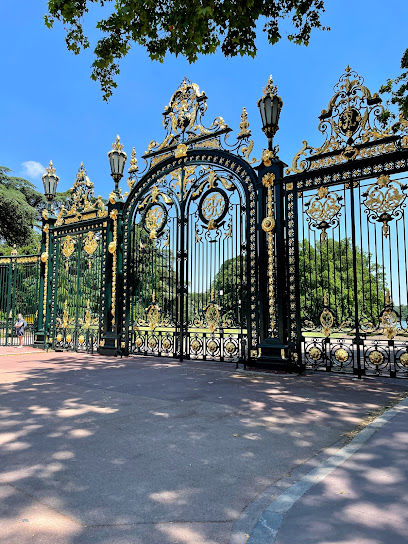
Basilica of Notre Dame of Fourvière
Discover the breathtaking Basilica of Notre Dame of Fourvière in Lyon, a stunning architectural marvel with rich history and panoramic views.
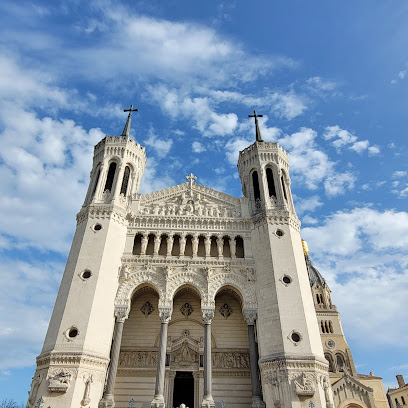
Place Bellecour
Explore Place Bellecour, a vibrant plaza in Lyon, France, rich in history, surrounded by stunning architecture and lively local culture.
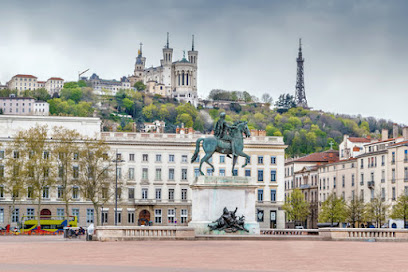
Cathédrale Saint-Jean-Baptiste
Discover the breathtaking Cathédrale Saint-Jean-Baptiste in Lyon, a stunning Gothic masterpiece with rich history and exquisite stained glass.

Museum of Fine Arts of Lyon
Explore the Museum of Fine Arts in Lyon, a cultural jewel showcasing timeless artworks from ancient to modern times in a stunning architectural setting.
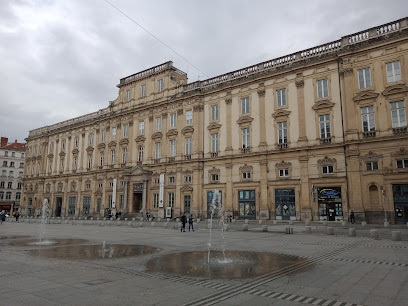
Théâtre Gallo Romain de Lyon-Fourvière
Explore Théâtre Gallo Romain de Lyon-Fourvière, a stunning Roman amphitheater in Lyon, rich in history and breathtaking views.
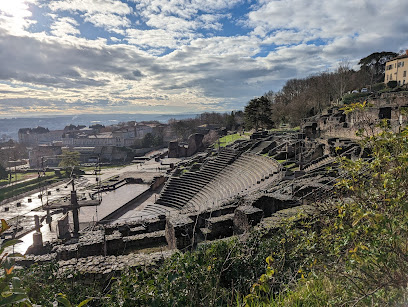
Hôtel-Dieu de Lyon
Explore the rich history and architectural wonder of Hôtel-Dieu de Lyon, a cultural landmark that showcases the heart of Lyon's heritage.
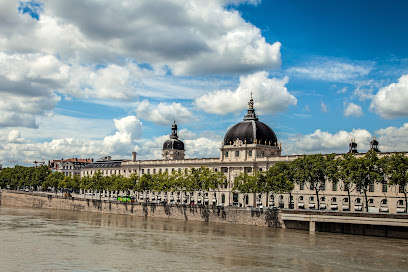
Fresque des Lyonnais
Discover Lyon's rich history through the vibrant Fresque des Lyonnais, a stunning mural depicting the city's cultural heritage and iconic figures.
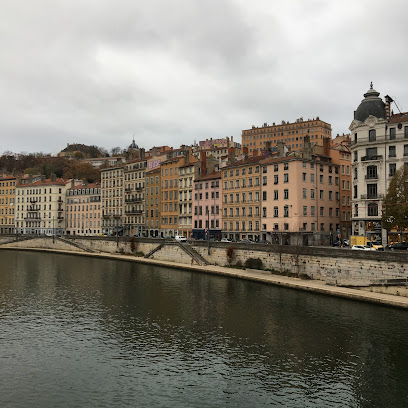
Mur des Canuts
Explore the Mur des Canuts, Lyon's iconic mural that vividly narrates the city's silk-weaving heritage and artistic spirit.
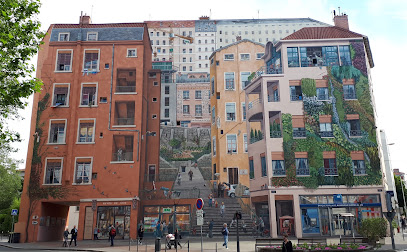
Gallo-Roman Museum of Lyon-Fourvière
Uncover the ancient wonders at the Gallo-Roman Museum of Lyon-Fourvière, where history comes alive in the heart of the city.
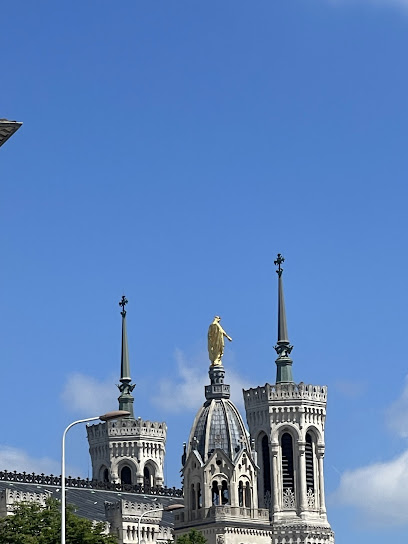
Place des Terreaux
Discover the vibrant Place des Terreaux, a historical plaza in Lyon rich in culture, stunning architecture, and lively atmosphere, perfect for tourists.
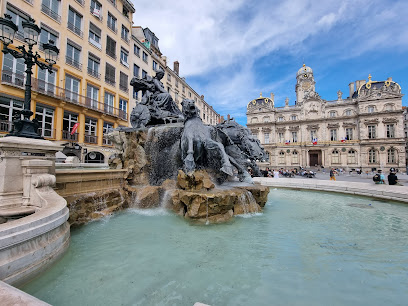
Opéra National de Lyon
Experience the grandeur of the Opéra National de Lyon, where world-class performances meet stunning architectural beauty in the heart of France.
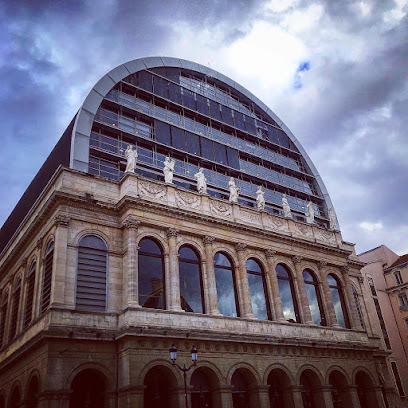
Bartholdi Fountain
Explore the Bartholdi Fountain in Lyon, a historic masterpiece with stunning sculptures and vibrant surroundings, perfect for your travel experience.
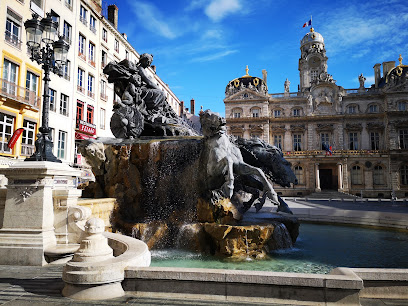
Palais de la Bourse de Lyon
Explore the exquisite Palais de la Bourse de Lyon, a historical gem that symbolizes the city's rich architectural and cultural heritage.
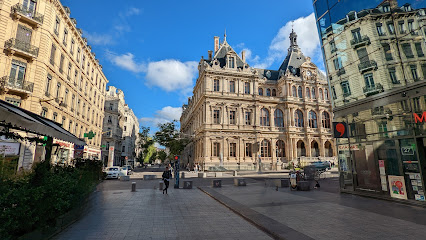
Jardin des Curiosités
Explore the stunning Jardin des Curiosités in Lyon, where nature meets art, offering breathtaking views and a peaceful escape from the city's hustle and bustle.
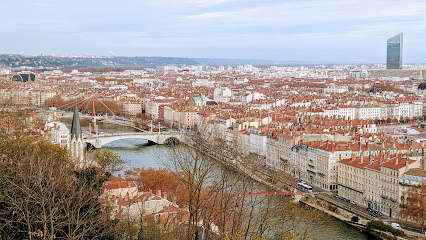
Unmissable attractions to see
Parc de la Tête d'Or
Discover Lyon's Parc de la Tête d'Or: a sprawling urban oasis with botanical gardens, a free zoo, a serene lake, and endless recreational activities for a perfect escape.
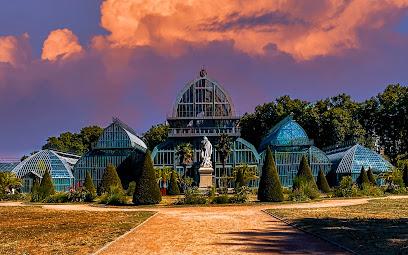
Basilica of Notre Dame of Fourvière
Discover Lyon's iconic Basilica of Notre-Dame de Fourvière: a stunning blend of Romanesque and Byzantine architecture, offering breathtaking panoramic views and a rich history.
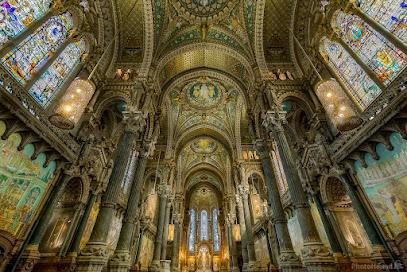
Place Bellecour
Experience the grandeur of Place Bellecour, Lyon's central square, a historic landmark and vibrant hub for culture, events, and exploration in the heart of the city.
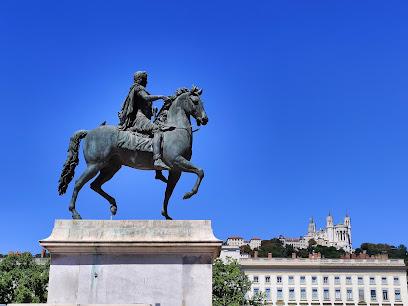
Musée des Confluences
Explore the wonders of science, anthropology, and civilizations at Lyon's Musée des Confluences, an architectural marvel where knowledge and curiosity converge.
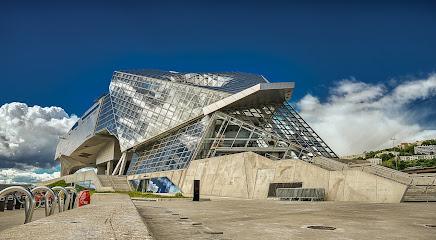
Cathédrale Saint-Jean-Baptiste
Discover Lyon's Cathédrale Saint-Jean-Baptiste, a captivating blend of Romanesque and Gothic architecture in the heart of Vieux Lyon, steeped in history and spiritual significance.
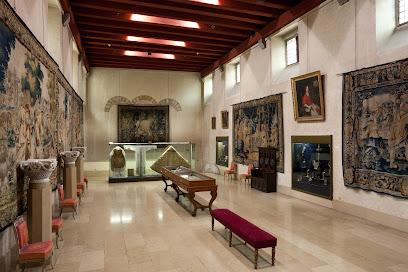
Musée Cinéma et Miniature
Discover the enchanting world of miniatures and movie magic at Lyon's Musée Cinéma et Miniature, nestled in the heart of Vieux Lyon, a UNESCO World Heritage site, for an unforgettable experience.
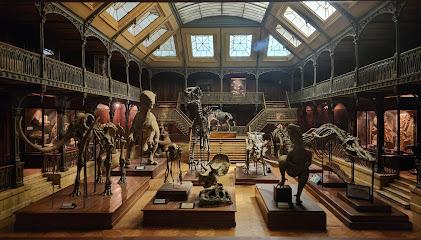
Halle Tony Garnier
Discover the architectural marvel and cultural heartbeat of Lyon at Halle Tony Garnier, a historic concert hall hosting diverse performances and events.
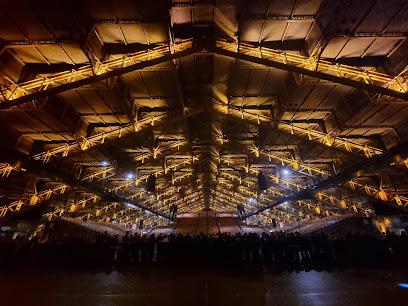
Museum of Fine Arts of Lyon
Discover centuries of artistic excellence at the Museum of Fine Arts of Lyon, a cultural cornerstone showcasing masterpieces from ancient to modern times.
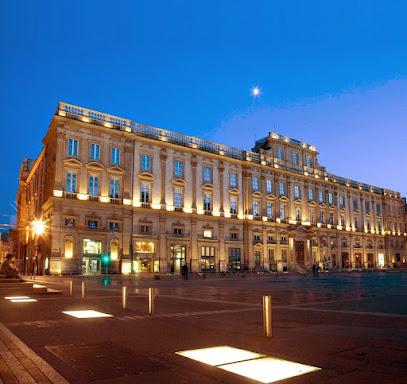
Théâtre Gallo Romain
Discover Lyon's Roman past at the Théâtre Gallo Romain on Fourvière hill, where ancient ruins meet modern culture and panoramic city views await.

Hôtel-Dieu de Lyon
Discover the grandeur of Lyon's Hôtel-Dieu, a meticulously restored historical landmark transformed into a vibrant hub of luxury, gastronomy, and culture on the Rhône's edge.
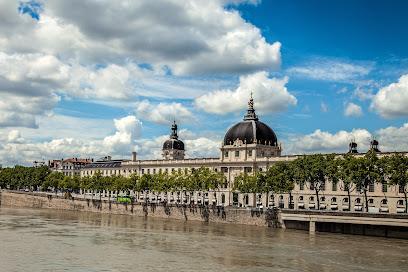
Fresque des Lyonnais
Discover the artistic brilliance and historical significance of Fresque des Lyonnais, a captivating mural celebrating Lyon's rich cultural heritage.
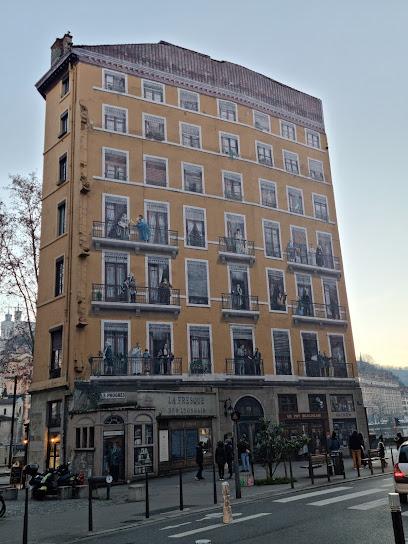
Mur des Canuts
Discover Lyon's vibrant history and culture at the Mur des Canuts, one of Europe's largest trompe-l'oeil murals, depicting the life and spirit of the city's silk workers in the Croix-Rousse district.
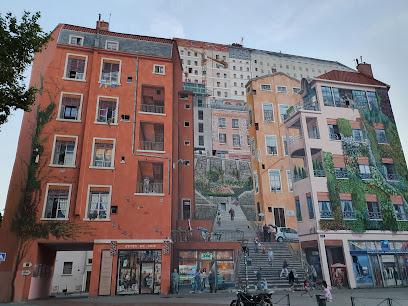
Gallo-Roman Museum of Lyon-Fourvière
Explore the rich history of Roman civilization at the Gallo-Roman Museum of Lyon-Fourvière, a must-visit for history enthusiasts in Lyon.
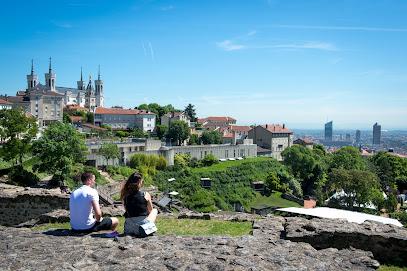
Aquarium of Lyon
Explore the mesmerizing underwater world at the Aquarium of Lyon, where marine life comes alive through captivating exhibits and educational experiences.
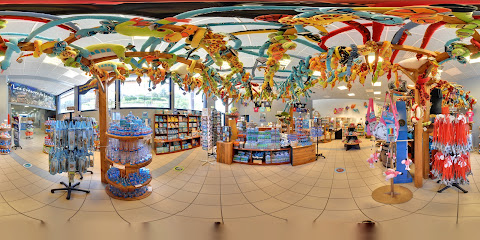
Mini World Lyon
Discover France's largest animated miniature park in Lyon, where intricate landscapes, playful scenes, and dazzling light shows create an unforgettable experience for all ages.
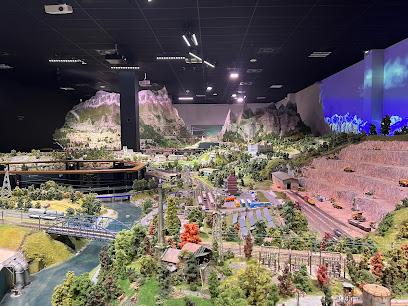
Essential places to dine
Carmelo
Experience authentic Italian cuisine at Carmelo in Lyon, where every dish tells a story of tradition and flavor.
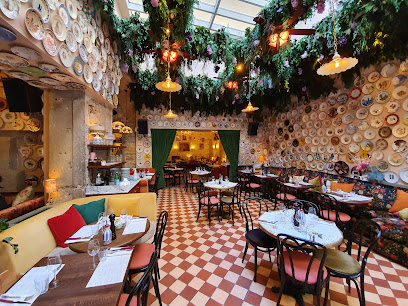
Chez Grand-Mère
Experience authentic French cuisine at Chez Grand-Mère, where tradition meets warmth in the heart of Lyon.
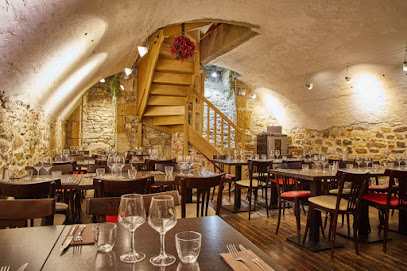
Les Fils À Maman Lyon
Discover Les Fils À Maman in Lyon: A unique blend of French cuisine and eclectic charm awaits every visitor.
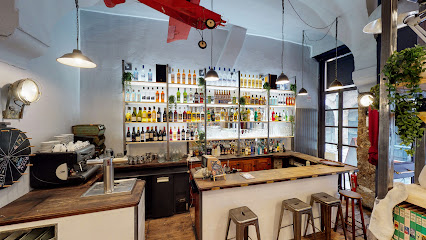
Brasserie des Brotteaux
Experience authentic French cuisine at Brasserie des Brotteaux in Lyon – where tradition meets culinary excellence.
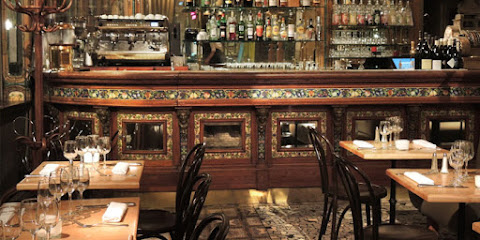
RESTAURANT LE VIEUX LYON
Experience authentic French cuisine at Restaurant Le Vieux Lyon, where tradition meets taste in a charming atmosphere.
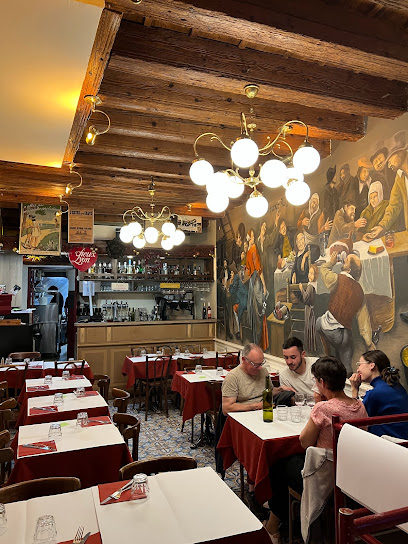
Food Traboule
Discover the flavors of Lyon at Food Traboule – where culinary tradition meets modern creativity in an inviting atmosphere.
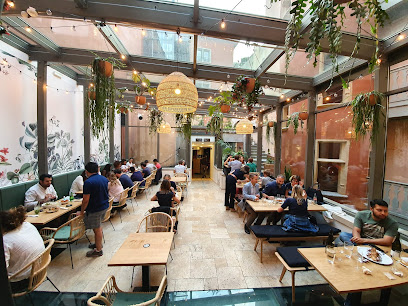
Le Bouchon des Cordeliers
Discover the heart of Lyon's culinary scene at Le Bouchon des Cordeliers - where traditional French cuisine meets warm hospitality.

Bouchon Tupin
Experience authentic French cuisine at Bouchon Tupin in Lyon - where tradition meets taste in every delicious bite.
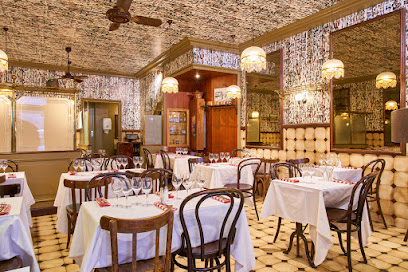
Petit Ogre
Discover the vibrant tastes of Africa, France, and the Mediterranean at Petit Ogre in Lyon - a must-visit culinary experience.
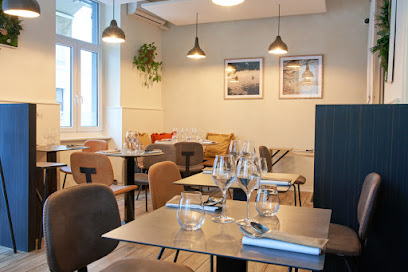
Bulle - Restaurant de Fourvière - Guy Lassausaie
Discover Bulle - Restaurant de Fourvière: An exquisite blend of haute French cuisine and stunning views in Lyon's historic district.
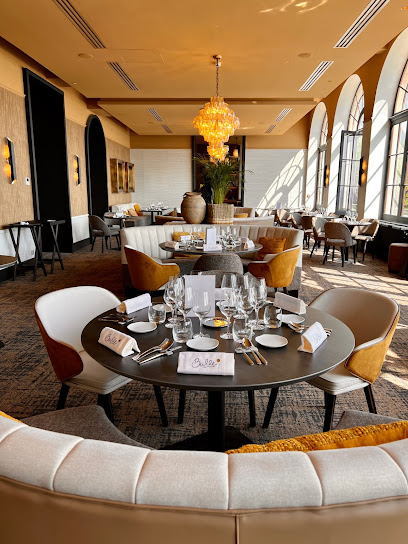
La Mère Brazier
Discover culinary excellence at La Mère Brazier in Lyon – where tradition meets innovation in fine French dining.
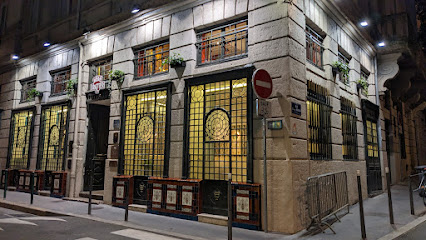
L'Alsacien Lyon - Bar à Flammekueche -
Experience authentic Alsatian cuisine at L'Alsacien Lyon - home of delicious Flammekueche and vibrant live music.
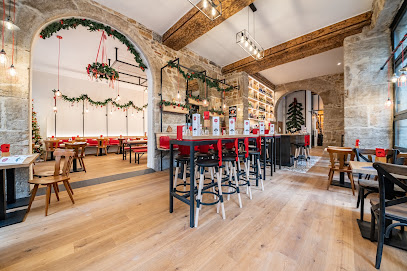
Restaurant Léon de Lyon
Discover exquisite French dining at Restaurant Léon de Lyon, where tradition meets innovation in every dish.
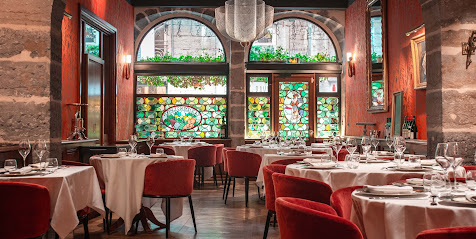
LES 3 DOMES
Experience exquisite French cuisine with breathtaking views at Les 3 Dômes, one of Lyon's premier dining destinations.
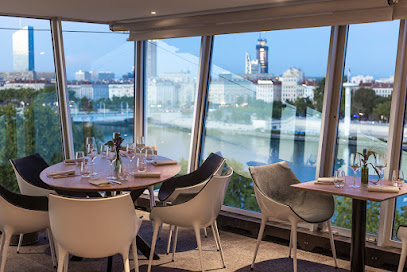
Culina Hortus
Experience the best of vegetarian French-Mediterranean cuisine at Culina Hortus in Lyon - a true culinary delight for every food lover.
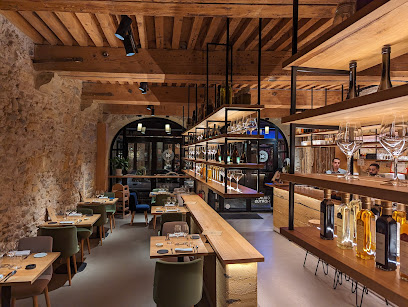
Markets, malls and hidden boutiques
Confluence
Explore Confluence in Lyon – a lively shopping mall combining modern architecture with diverse retail, dining, and entertainment options.
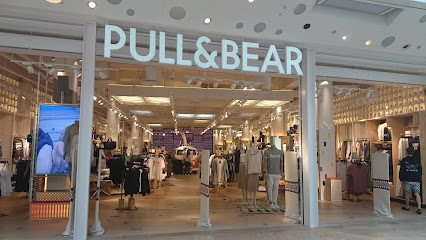
Westfield La Part-Dieu
Explore Westfield La Part-Dieu in Lyon - a premier shopping destination with an unbeatable variety of stores, dining options, and entertainment experiences.
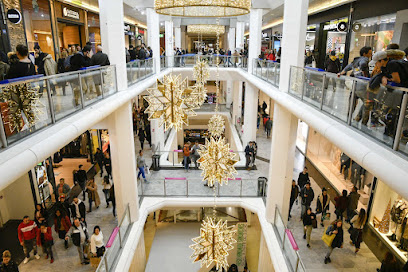
Galeries Lafayette
Explore Galeries Lafayette in Lyon, your ultimate shopping destination for fashion, beauty, and lifestyle products, encapsulating the essence of contemporary French style.
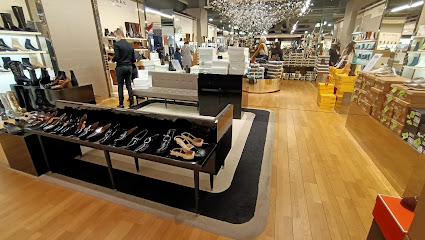
Nature and Discoveries
Discover unique eco-friendly gifts at Nature and Discoveries in Lyon, where nature meets creativity in the heart of the city.
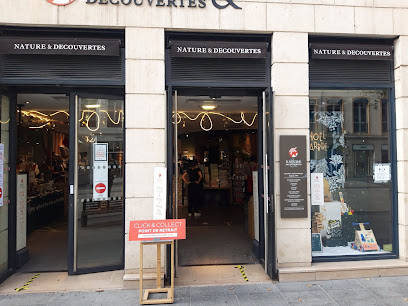
Louis Vuitton Lyon
Explore the luxurious Louis Vuitton store in Lyon, featuring exquisite leather goods and fashion accessories that define elegance and style.
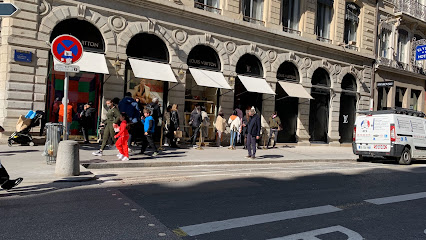
Workshops Marinette
Explore the charm of Workshops Marinette in Lyon, a vintage store offering unique crafts and antiques that reflect the rich artistry of French culture.
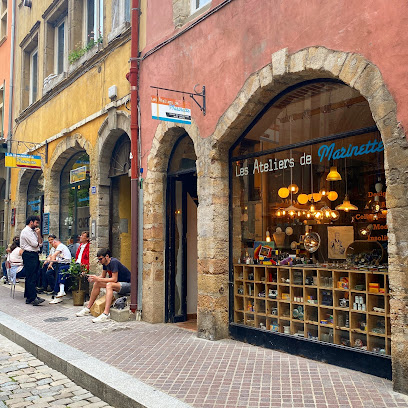
Pop and Shoes | Concept store Lyon & e-shop
Explore Pop and Shoes in Lyon for a diverse selection of stylish clothing, shoes, and accessories that elevate your wardrobe.
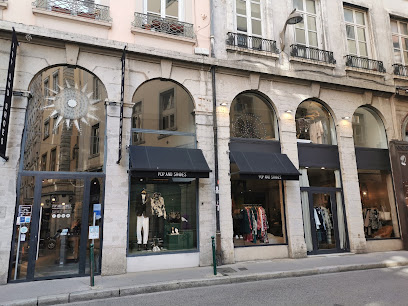
The Silver Arcade of Lyon
Discover the elegance of The Silver Arcade in Lyon, where shopping meets history in a beautifully crafted architectural gem.
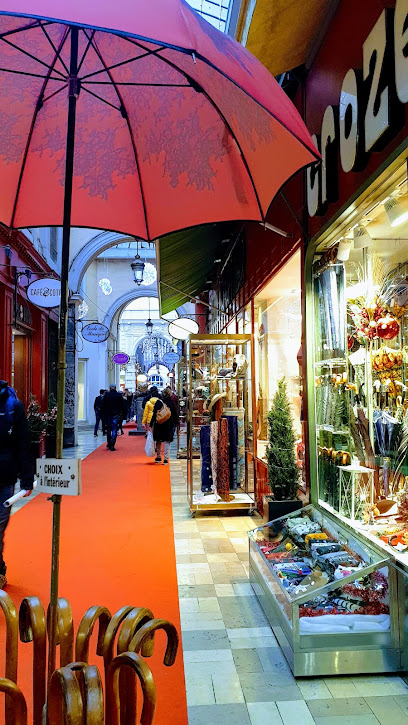
Silk Saint Georges
Explore the exquisite world of silk at Silk Saint Georges in Lyon, where fashion meets history in a charming museum setting.
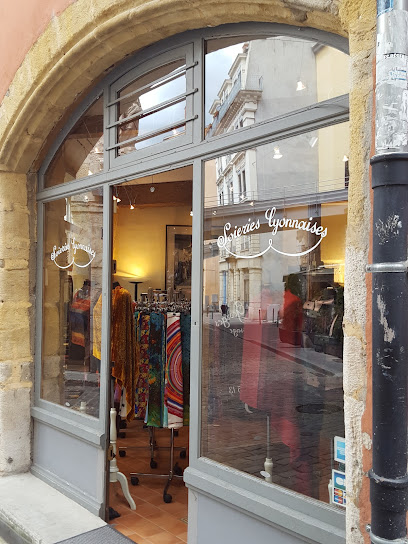
Mandragore
Discover Mandragore, an enchanting gift shop in Lyon, offering unique items from rare books to magical treasures for every traveler.
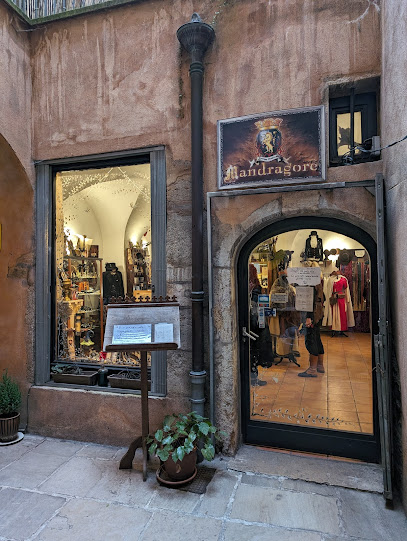
Les Pièces Vintage Store
Discover unique vintage clothing, shoes, and accessories at Les Pièces Vintage Store in Lyon, where timeless fashion meets modern style.
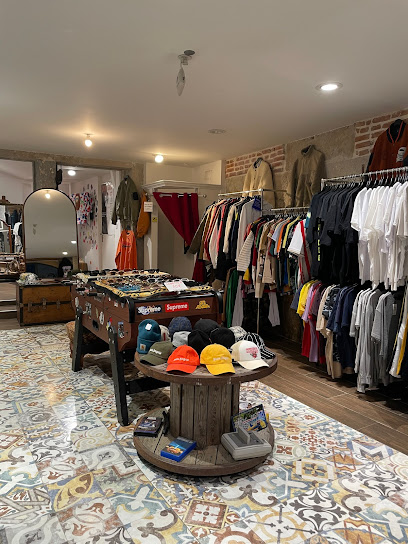
Atelier de soierie - BROCHIER SOIERIES
Explore the rich heritage of silk weaving at Atelier de Soierie - Brochier Soieries, a unique fusion of fashion and history in Lyon.
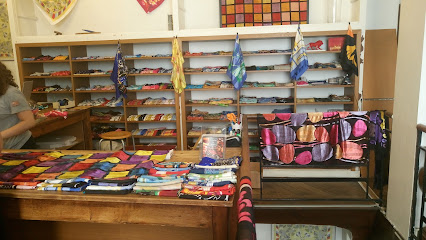
L'effet canopée Lyon 1 - Concept-store à Lyon et en ligne
Explore L'effet Canopée in Lyon for unique gifts and artisanal treasures, celebrating local creativity in a charming concept store.
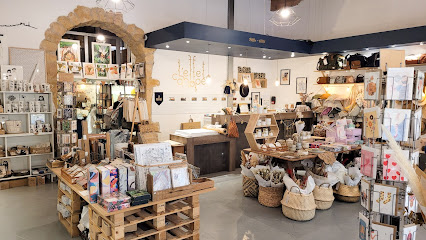
LEONARD Vintage Store
Explore LEONARD Vintage Store in Lyon for unique vintage clothing treasures and sustainable shopping experiences that celebrate fashion history.
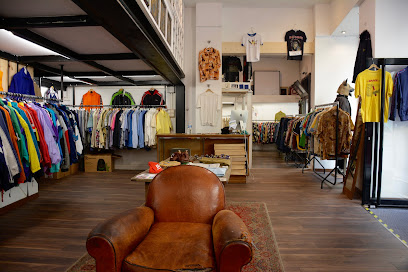
Graphiti Lyon
Explore Graphiti in Lyon for a unique fashion experience, offering stylish clothing, handbags, and leather goods for every taste.
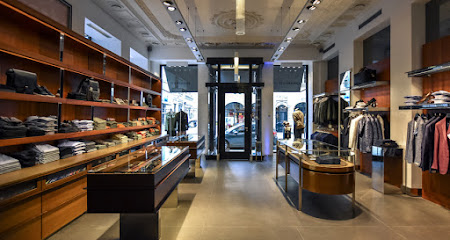
Essential bars & hidden hideouts
The Elephant & Castle
Experience the vibrant atmosphere and exquisite cuisine at The Elephant & Castle, Lyon's premier gastropub and bar.
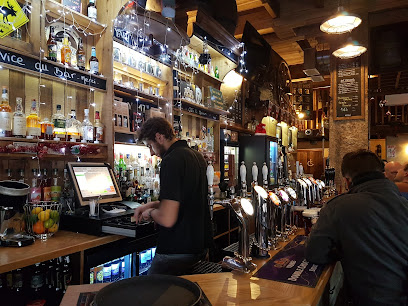
MOS - Maker of Stories
Discover MOS - Maker of Stories in Lyon: a lively bar and restaurant where culinary creativity meets vibrant storytelling.
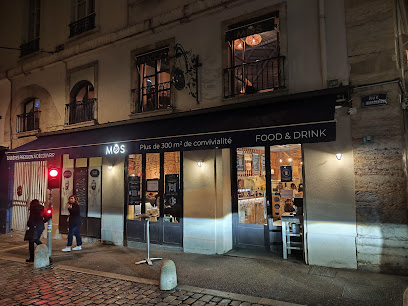
Funky Monky Lyon - Bar - Restaurant - Tapas
Discover the vibrant flavors of Lyon at Funky Monky, your go-to tapas bar and restaurant for an unforgettable dining experience.
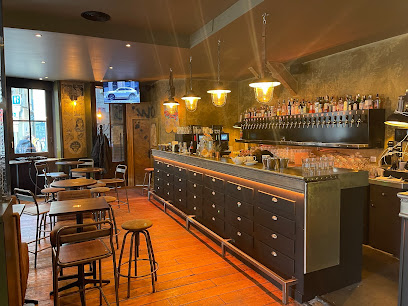
The Monkey Club Cocktail Bar
Discover Lyon's vibrant nightlife at The Monkey Club Cocktail Bar, where exceptional cocktails and a lively atmosphere await.
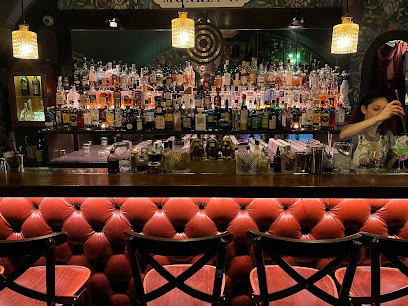
L'Artchimiste
Discover L'Artchimiste in Lyon for creative cocktails and a stylish atmosphere, perfect for nightlife enthusiasts and casual visitors alike.
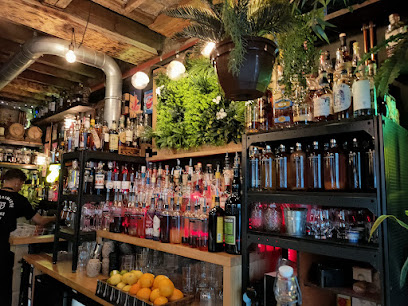
Crazy Dog - Lyon Terreaux
Discover Crazy Dog - a lively bar and restaurant in Lyon's Terreaux square, offering a unique farm-themed ambiance and delicious menu options.
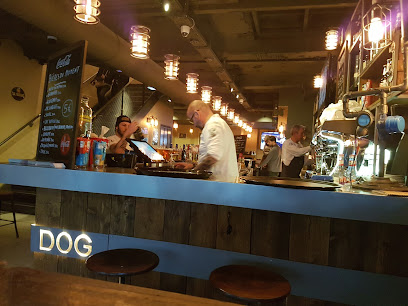
Le Pub Danois
Discover the heart of Lyon's nightlife at Le Pub Danois, where lively atmosphere meets exquisite drinks and delightful cuisine.
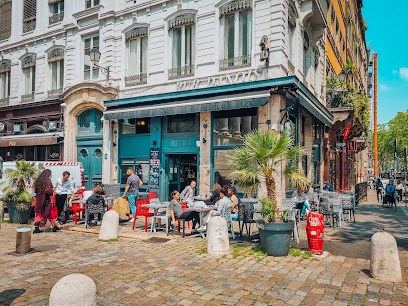
Bar Le Florian, Cocktails & Spirits
Experience the vibrant cocktail culture of Lyon at Bar Le Florian, where creativity meets craftsmanship in every drink.
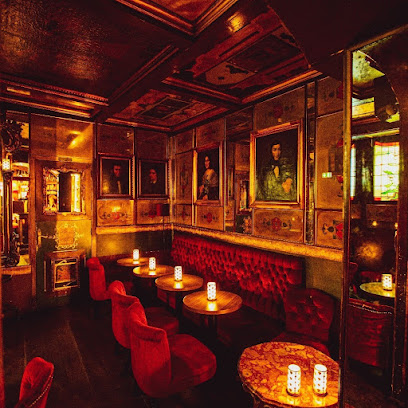
La Taverne du Perroquet Lyon
Discover the nautical charm of La Taverne du Perroquet, a lively bar in Lyon offering delightful drinks and a unique atmosphere.
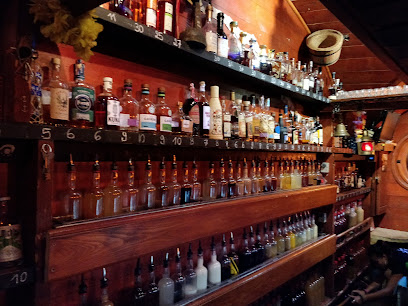
L' Antiquaire
Experience the essence of Lyon's cocktail culture at L' Antiquaire, where creativity and ambiance blend for an unforgettable night out.
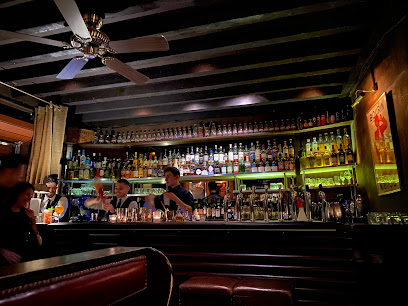
The Phantom of the Opera
Discover the enchanting atmosphere and craft cocktails at The Phantom of the Opera, a premier cocktail bar in Lyon, France.
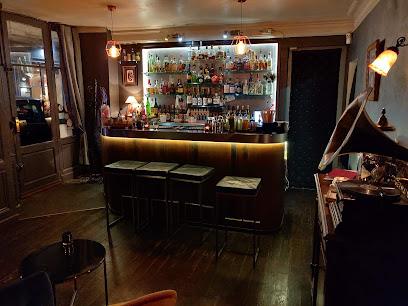
La Faute aux Ours
Discover La Faute aux Ours in Lyon: A cocktail bar blending creativity, ambiance, and a unique drink selection for an unforgettable night.
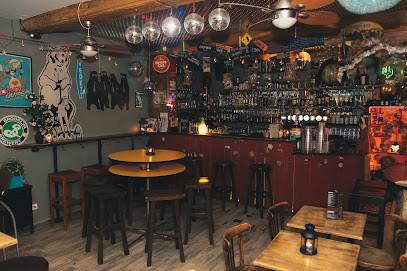
Black Forest Society
Discover the enchanting Black Forest Society in Lyon, where creative cocktails and a stylish atmosphere offer a perfect night out.
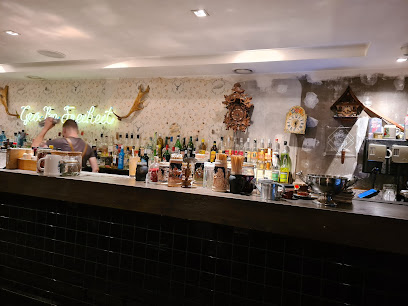
Wanderlust Lyon
Discover Wanderlust Lyon, a vibrant cocktail bar that combines travel themes with expertly crafted drinks in the heart of Lyon's nightlife.
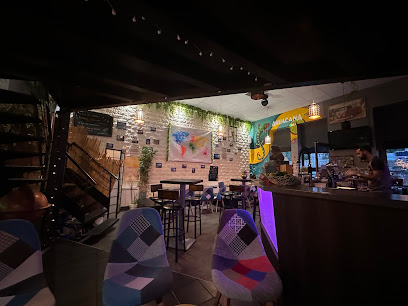
Travel experiences inspired by this city
Explore more travel diariesLocal Phrases
-
- HelloBonjour
[bohn-zhoor] - GoodbyeAu revoir
[oh ruh-vwahr] - YesOui
[wee] - NoNon
[nohn] - Please/You're welcomeS'il vous plaît/De rien
[seel voo pleh / duh ryen] - Thank youMerci
[mehr-see] - Excuse me/SorryExcusez-moi/Désolé
[ehk-skyoo-zay mwah / day-zoh-lay] - How are you?Ça va?
[sah vah] - Fine. And you?Ça va bien. Et vous?
[sah vah byen / ay voo] - Do you speak English?Parlez-vous anglais?
[par-lay voo ahn-glay] - I don't understandJe ne comprends pas
[zhe nuh kohm-prahn pah]
- HelloBonjour
-
- I'd like to see the menu, pleaseJe voudrais voir la carte, s'il vous plaît
[zhe voo-dray vwahr lah kart, seel voo pleh] - I don't eat meatJe ne mange pas de viande
[zhe nuh mahnj pah duh vyand] - Cheers!Santé!
[sahn-tay] - I would like to pay, pleaseJe voudrais payer, s'il vous plaît
[zhe voo-dray pay-ay, seel voo pleh]
- I'd like to see the menu, pleaseJe voudrais voir la carte, s'il vous plaît
-
- Help!Au secours!
[oh seh-koor] - Go away!Allez-vous en!
[ah-lay voo zahn] - Call the Police!Appelez la police!
[ah-peh-lay lah poh-lees] - Call a doctor!Appelez un médecin!
[ah-peh-lay uh may-deh-sahn] - I'm lostJe suis perdu(e)
[zhe swee pair-doo] - I'm illJe suis malade
[zhe swee mah-lahd]
- Help!Au secours!
-
- I'd like to buy...Je voudrais acheter...
[zhe voo-dray zheh-tey...] - I'm just lookingJe regarde juste
[zhe ruh-gard zhewst] - How much is it?Combien ça coûte?
[kohm-byen sah koot] - That's too expensiveC'est trop cher
[say troh shehr] - Can you lower the price?Pouvez-vous baisser le prix?
[poo-vey voo beh-say luh pree]
- I'd like to buy...Je voudrais acheter...
-
- What time is it?Quelle heure est-il?
[kell uhr ay-teel] - It's one o'clockIl est une heure
[eel ay ewn uhr] - Half past (10)Dix heures et demi
[dees uhr ay dem-ee] - MorningMatin
[mah-tahn] - AfternoonAprès-midi
[ah-pray meed-ee] - EveningSoir
[swahr] - YesterdayHier
[yehr] - TodayAujourd'hui
[oh-zhoor-dwee] - TomorrowDemain
[duh-mahn] - 1Un
[uhn] - 2Deux
[deuh] - 3Trois
[trwah] - 4Quatre
[katr] - 5Cinq
[sank] - 6Six
[sees] - 7Sept
[seht] - 8Huit
[weet] - 9Neuf
[nuff] - 10Dix
[dees]
- What time is it?Quelle heure est-il?
-
- Where's a/the...?Où est un/le...?
[oo ay uh/luh] - What's the address?Quelle est l'adresse?
[kell ay lad-res] - Can you show me (on the map)?Pouvez-vous me montrer (sur la carte)?
[poo-vey voo muh mohn-tray (sir lah kart)] - When's the next (bus)?Quand est le prochain (bus)?
[kahn ay luh proh-shan (bus)] - A ticket (to ....)Un billet (pour ....)
[uhn bee-yay (poor)]
- Where's a/the...?Où est un/le...?
History of Lyon
-
Lyon, originally known as Lugdunum, was founded in 43 BCE by Lucius Munatius Plancus, a lieutenant of Julius Caesar. The city quickly became a significant Roman settlement due to its strategic location at the confluence of the Rhône and Saône rivers. Lugdunum served as the capital of the Gaul provinces and was a hub for commerce, culture, and politics. The city was equipped with impressive Roman structures, including an amphitheater, aqueducts, and baths, traces of which can still be seen today.
-
During the Middle Ages, Lyon emerged as a major economic center, largely due to its thriving silk industry. The city was granted a monopoly on silk production by King Louis XI in the 15th century. This period also saw the establishment of numerous religious institutions, including the Basilica of Saint-Martin d'Ainay and the Cathedral of Saint John the Baptist. Lyon's annual fairs attracted merchants from across Europe, further cementing its status as a commercial hub.
-
The Renaissance period was marked by significant cultural and intellectual advancements in Lyon. The city became a center for humanist thought and was home to notable scholars and artists. One of Lyon's most significant contributions to this era was its flourishing printing industry. By the 16th century, Lyon had become one of the leading printing centers in Europe, producing numerous important works in various fields, including science, philosophy, and literature.
-
Lyon played a notable role during the French Revolution. The city initially supported the revolution but later opposed the radical turn taken by the Jacobins, leading to a brutal siege and repression by revolutionary forces in 1793. The 19th century saw Lyon's transformation into an industrial powerhouse, particularly in the silk industry. The invention of the Jacquard loom by Joseph Marie Jacquard revolutionized textile production. The city also witnessed significant social changes, including the rise of the working-class movement.
-
During World War II, Lyon was a focal point of the French Resistance against Nazi occupation. The city's complex network of traboules, or hidden passageways, facilitated clandestine activities and meetings. Jean Moulin, one of the most prominent figures of the French Resistance, coordinated efforts from Lyon. The city's resistance activities earned it the Croix de la Libération, one of France's highest honors, after the war.
-
In the latter half of the 20th century, Lyon continued to grow and modernize while preserving its historical heritage. The city's rich history and well-preserved architecture led to its designation as a UNESCO World Heritage Site in 1998. Today, Lyon is renowned for its vibrant cultural scene, including its famous annual Festival of Lights (Fête des Lumières). The city remains a major center for business, education, and gastronomy, known for its traditional bouchons and culinary innovations.
Lyon Essentials
-
Lyon is well-connected by air, rail, and road. Lyon-Saint Exupéry Airport (LYS) is the primary international airport, offering flights from major cities worldwide. It is located about 25 kilometers east of the city center and can be reached via the Rhône Express tram in approximately 30 minutes. The city is also accessible by train, with Lyon Part-Dieu and Lyon Perrache being the main railway stations. High-speed TGV trains connect Lyon to Paris in about 2 hours. For those traveling by car, Lyon is easily accessible via major highways A6, A7, and A42.
-
Lyon has an efficient public transportation network operated by TCL, which includes buses, trams, and metro lines. Tickets can be purchased at vending machines in stations or via mobile apps. The city also offers Velo'v, a bike-sharing service, and numerous taxi services. For a more scenic experience, consider taking a boat ride on the Saône and Rhône rivers. Walking is another great way to explore the city's compact and pedestrian-friendly center.
-
The official currency in Lyon is the Euro (EUR). Credit and debit cards are widely accepted in hotels, restaurants, and shops. ATMs are plentiful, and it's easy to withdraw cash if needed. However, it's advisable to carry some cash for smaller establishments and markets. Contactless payment methods, such as Apple Pay and Google Wallet, are also increasingly accepted.
-
Lyon is generally a safe city for tourists, but it's wise to take standard precautions. Areas such as Guillotière and parts of Vieux Lyon have higher crime rates, particularly at night, so it's best to stay vigilant. Keep an eye on your belongings in crowded places and avoid isolated areas after dark. Emergency numbers to know are 112 for general emergencies and 17 for police assistance.
-
In case of an emergency, dial 112 for immediate assistance. Lyon has several hospitals, including Hôpital Edouard Herriot and Centre Hospitalier Lyon-Sud, which provide comprehensive medical services. Pharmacies are readily available and can offer over-the-counter medications for minor health issues. It's advisable to carry travel insurance that covers medical emergencies for added security.
-
Fashion: Do dress stylishly but comfortably. Avoid overly casual attire like flip-flops or athletic wear when dining out. Religion: Do respect religious sites by dressing modestly and keeping noise levels down. Public Transport: Do validate your ticket before boarding. Don't eat or drink on public transport. Greetings: Do greet people with a 'Bonjour' and a handshake. Avoid overly familiar greetings unless invited. Eating & Drinking: Do try local specialties like 'quenelles' and 'coq au vin'. Don't rush meals; dining is an experience in Lyon.
-
To experience Lyon like a local, visit the Traboules, hidden passageways used by silk workers that are now a unique architectural feature. Enjoy a meal at a 'bouchon,' a traditional Lyonnais restaurant. Take a stroll through the Parc de la Tête d'Or, one of the largest urban parks in France. Engage with locals at markets like Les Halles de Lyon Paul Bocuse to taste fresh, local produce and specialties.
Trending Landmark in Lyon
-
Parc de la Tête d'Or
-
Basilica of Notre Dame of Fourvière
-
Place Bellecour
-
Cathédrale Saint-Jean-Baptiste
-
Museum of Fine Arts of Lyon
-
Théâtre Gallo Romain de Lyon-Fourvière
-
Hôtel-Dieu de Lyon
-
Fresque des Lyonnais
-
Mur des Canuts
-
Gallo-Roman Museum of Lyon-Fourvière
-
Place des Terreaux
-
Opéra National de Lyon
-
Bartholdi Fountain
-
Palais de la Bourse de Lyon
-
Jardin des Curiosités
Nearby Cities to Lyon
-
Things To Do in Grenoble
-
Things To Do in Annecy
-
Things To Do in Geneva
-
Things To Do in Lausanne
-
Things To Do in Vevey
-
Things To Do in Dijon
-
Things To Do in Montreux
-
Things To Do in Avignon
-
Things To Do in Nîmes
-
Things To Do in Zermatt
-
Things To Do in Turin
-
Things To Do in Bern
-
Things To Do in Thun
-
Things To Do in Montpellier
-
Things To Do in Murren


















